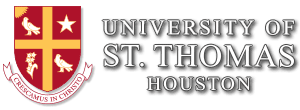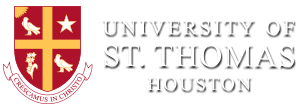Be Bold Blog
The University of St. Thomas (UST) is Houston’s Catholic University, committed to the Catholic intellectual tradition and the dialogue between faith and reason. Our blog is dedicated to helping you explore your future career possibilities and how to make the most of your college experience.
Importance of Core Classes
Exploring Core Classes in College and Why They’re Important
For many soon-to-be college students, the prospect of getting to choose an area of study is exciting. It’s far different than taking classes that fit within a pretty rigid curriculum like you did in high school. But while pursuing higher education affords you a lot of opportunity to choose a degree that focuses on your specific interests, there are some core classes in college that every undergraduate student will need to complete.
Schools call the predetermined requirements for college students “general education” or “core” classes. While every college and university expects students to complete at least some core courses, the exact number and subjects will vary from one institution to the next.
Given that college is a key stepping stone in preparing you for your future career, you may be wondering why taking core classes in college is necessary. You’re also probably curious about which subjects you should expect to encounter on your path to a degree. You’re about to uncover the answers to your questions.

Why is it important for students to complete core classes in college?
By requiring students to complete general education classes, colleges can help ensure that every student receives a well-rounded education. This is particularly true at liberal arts institutions[CS1] , which often place even more emphasis on core courses. Business students, for example, will also gain exposure to literature, science and more.
This is beneficial for a few reasons. First, it introduces students to more of their peers. This can expose them to a diverse student body[CS2] with varying perspectives, which can challenge their preconceived notions.
There’s also evidence that a multidisciplinary liberal arts education can better equip students for their future careers. A special project funded by the Teagle Foundation that polled more than 1,000 college graduates shows evidence that a liberal arts education can lead to positive outcomes like being a leader and feeling personally fulfilled.
From a long-term employability perspective, receiving the type of well-rounded education that liberal arts schools emphasize becomes even more important. There’s no denying that gaining technical skills related to a specific career path is important. But evidence suggests that employers most value softer skills that students gain through a multidisciplinary education. These competencies include problem-solving, teamwork and written communication.
It’s also worth remembering the broad skills students gain through taking a variety of core classes are applicable across industries, occupations and even time. While STEM careers are attractive to many students, the requisite technical competencies have a limited shelf life. Research shows that job-relevant skills for STEM careers quickly become obsolete, resulting in flatter wage growth and professionals ultimately leaving the field.
And lest you think that completing a curriculum with a considerable number of core classes will lead to an unprofitable career, consider what it could lead to over time. One recent study shows that students who graduate from liberal arts colleges do very well once they enter the workforce. The research shows the 40-year median return on investment (ROI) for these schools is 27 percent higher than the median ROI across all institutions.
Which core classes should a quality curriculum include?
Every college or university will take a slightly different approach to general education courses. Both the subjects and specific credit requirements will vary depending on the school you attend. Some institutions may give more weight to classes that are inherently tied to what the institution is known for, whether that’s faith, service or something else. But you should always make sure the core curriculum at a given college focuses on the areas included in the ACT College and Career Readiness Standards: English, math, reading, science and writing.
There’s also an argument to be made for attending a college that includes core courses in each of the classical liberal arts. Some educators argue that instructing students with this type of curriculum helps inspire curiosity, reveal connections, foster independent thought and develop a hunger for knowledge. These seven classical subjects all fall under one of two categories. The first is category is called the “trivium,” which includes three disciplines related to language:
- Grammar – the study of language and how to use it correctly.
- Rhetoric – the art of effective and persuasive communication through speech or writing.
- Logic – the art of reasoning, which is used to gain and deepen knowledge.
The second category is called the “quadrivium,” which is considered more advanced. It includes four mathematical-scientific disciplines:
- Astronomy – the study of objects and phenomena in space.
- Music – the art of conveying thoughts and emotions through sounds.
- Arithmetic – the study of numbers and basic calculations used to solve problems.
- Geometry – the study of shapes and spatial relationships between objects.
As you compare colleges, it’s worth investigating the curriculum at each. Think about your career aspirations and all the skills you’ll need to gain to be successful in your chosen field. You may recognize that some general education courses could prove invaluable going forward.
Begin building your career foundation
While you may not love completing all your core classes in college, it’s clear they’re required for a reason. By providing a well-rounded education that spans across disciplines, schools can help ensure students’ future success in a range of careers.
As you think about your own professional goals, it’s wise to begin thinking about which majors interest you the most. Keep in mind that a quality liberal arts school like the University of St. Thomas can provide guidance should you need some help picking a field of study. To learn more about your degree options, visit our Academic programs page.
[CS1]Insert link to “Appreciating the True Value of a Liberal Arts Education” once published.
[CS2]Insert link to “6 Ways Diverse Colleges Are Benefiting Today’s Students” once published.
Ready to take the next step?
Related articles
About UST
The University of St. Thomas (UST) is Houston’s Catholic University, committed to the religious, ethical and intellectual traditions of Catholic higher education. For more than 70 years, we’ve been graduating students like you into successful careers in medicine, education, business, public administration and more – throughout Houston and across the globe.

